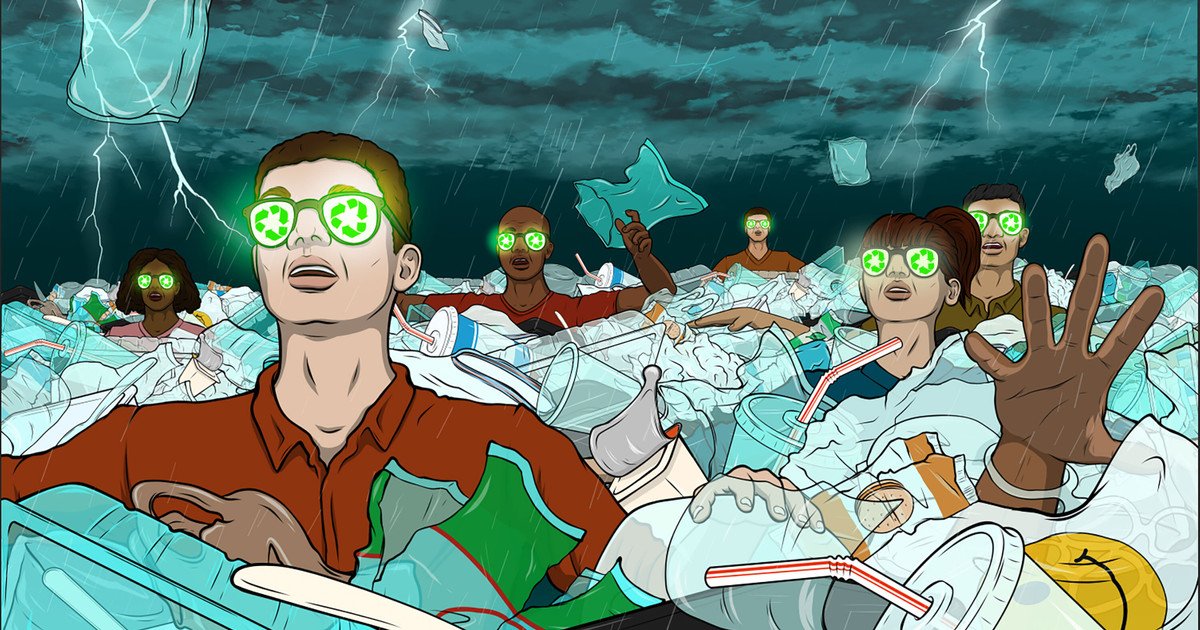Is there anything more pathetic than a used plastic bag?
They rip and tear. They float away in the slightest breeze. Left in the wild, their mangled remains entangle birds and choke sea turtles that mistake them for edible jellyfish. It takes 1,000 years for the bags to disintegrate, shedding hormone-disrupting chemicals as they do. And that outcome is all but inevitable, because no system exists to routinely recycle them. It’s no wonder some states have banned them and stores give discounts to customers with reusable bags.
But the plastics industry is working to make the public feel OK about using them again.
Companies whose futures depend on plastic production, including oil and gas giant ExxonMobil, are trying to persuade the federal government to allow them to put the label “recyclable” on bags and other plastic items virtually guaranteed to end up in landfills and incinerators.
…



Because by it’s very nature, recycling always costs more than first-round-use products. It takes more energy and more time to recycle goods into something else.
Further, it’s a misnomer, because many, many, many, many plastics flat out cannot be recycled into anything else no matter how much we wish it so.
Not always. Aluminum takes a lot of energy to extract from bauxite, but not nearly as much to recycle.
I was surprised to learn this when driving by an aluminum refinery adjacent to a hydroelectric dam in Washington State.
It uses so much power that it’s more efficient to move the ore to where the electricity is.
Which I why it goes REDUCE, REUSE, recycle.